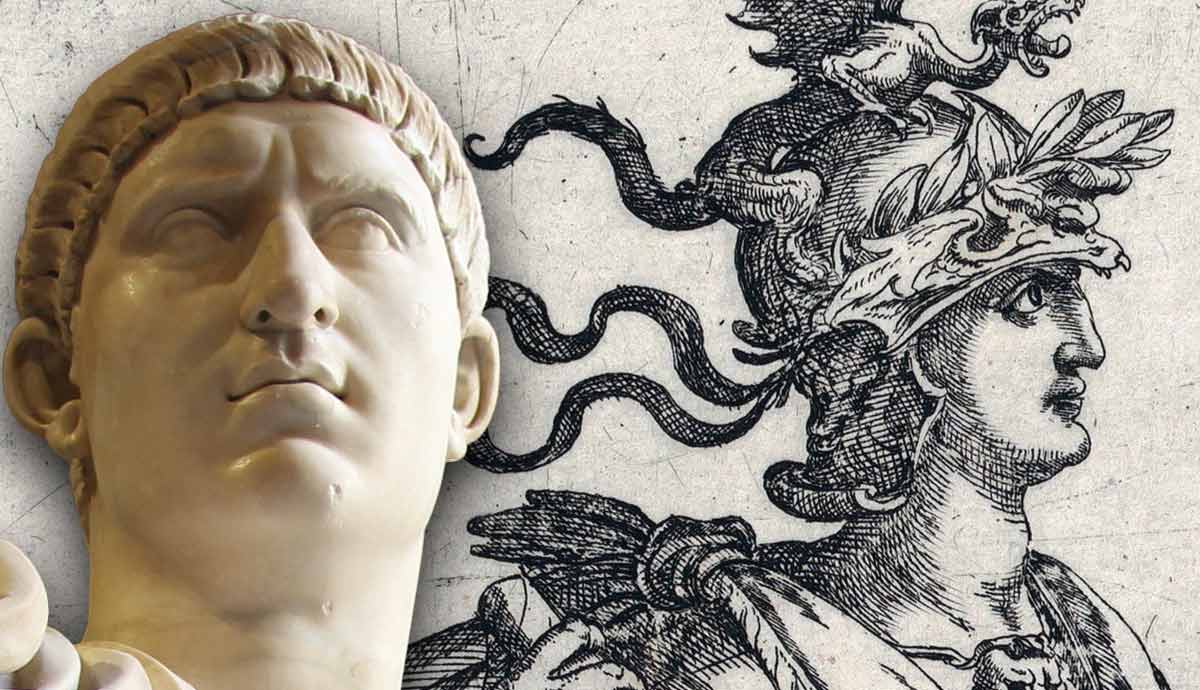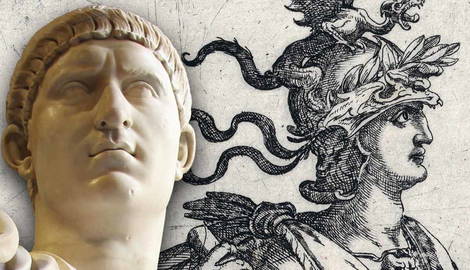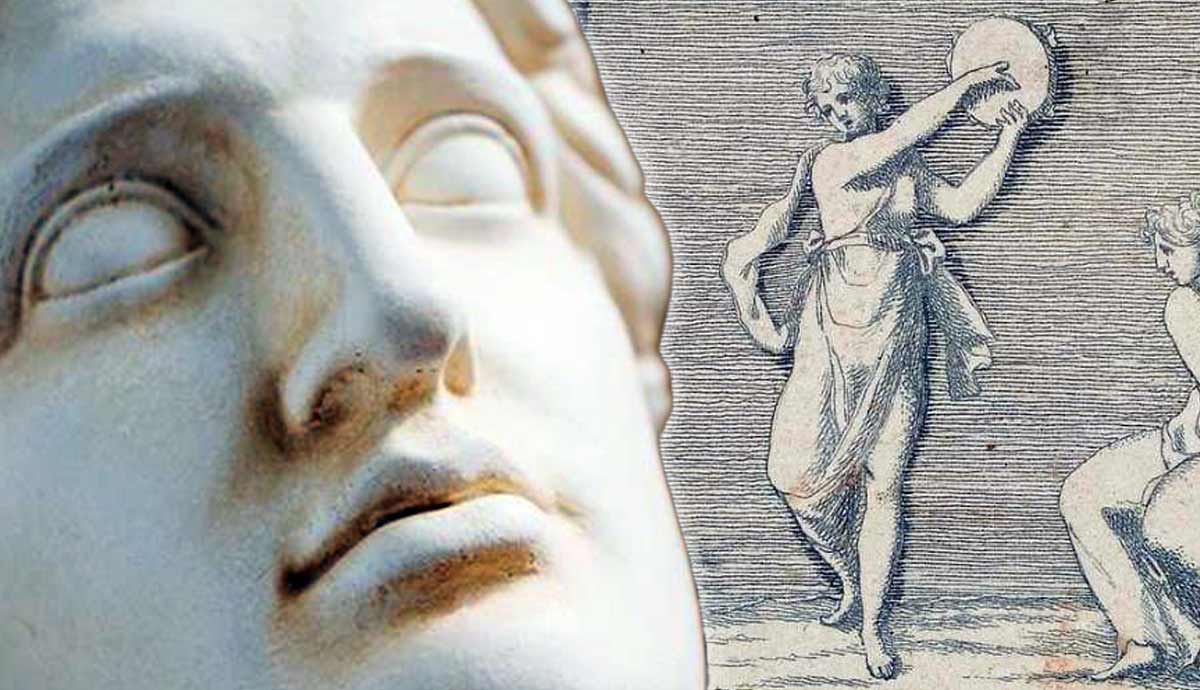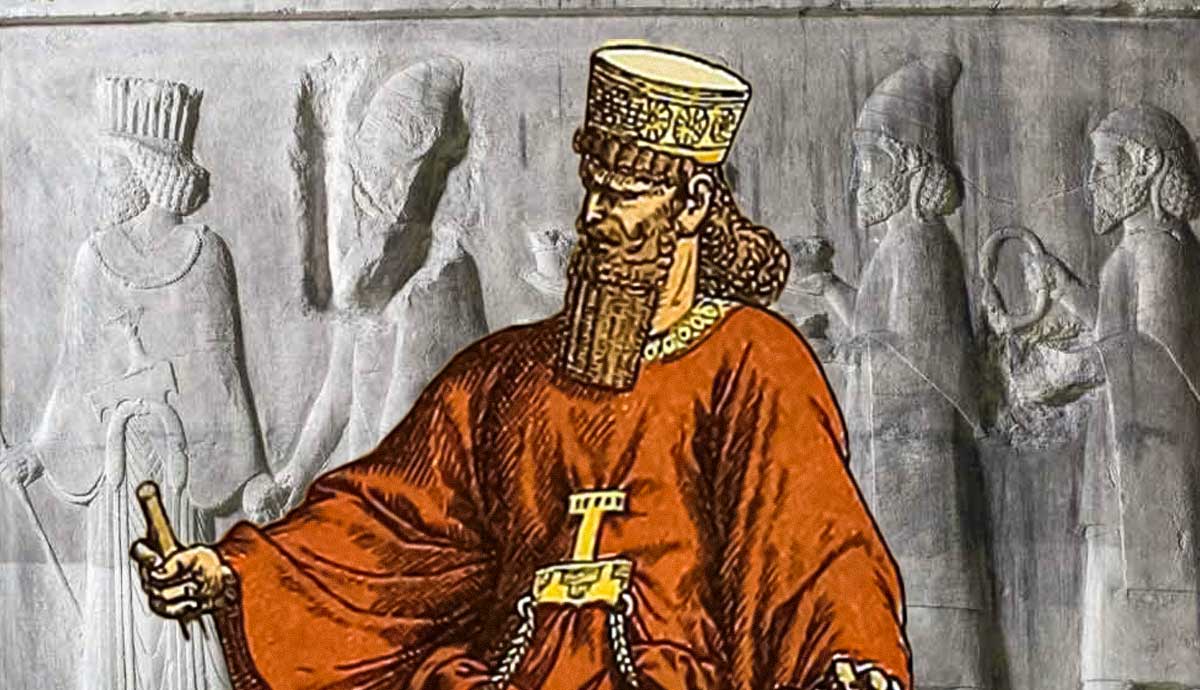
Marcus Silvius Otho has gone down in history for claiming the position of emperor of Rome for a short three-month period in 69 CE. This was during the year of volatility that followed the death of the last Julio-Claudian emperor, Nero, known as the Year of the Four Emperors. A former friend of the young Nero, when Otho claimed power, he presented himself as a new Nero. His reign ended when he was defeated by Vitellius in a battle that left 40,000 Romans dead.
Birth and Family Background

Otho, a member of an aristocratic (reportedly royal) Etruscan family, was born in 32 CE, in the final years of Tiberius’s reign. While Rome’s transformation from a republic to an empire was complete, this was an uncertain time. The Senate was recovering from the exile of the family of Germanicus and the execution of Sejanus, while still suffering under the burden of treason trials. Things got worse before they got better with the chaos of Caligula’s reign, followed by his assassination and the unexpected rise of Claudius to imperial power. But while Claudius was not the most popular emperor, his reign proved to be a time of relative peace for the Senate and good fortune for Otho and his family.
Otho’s great-grandfather seems to have been a supporter of Julius Caesar, and his son, Otho’s grandfather, may have been raised at court alongside Tiberius and Drusus, the sons of Livia and stepsons of Augustus. Some sources suggest that his son, Otho’s father, was the illegitimate son of Tiberius because of the physical resemblance between them (Suetonius, Otho 1.2).
Otho’s grandfather later entered the Senate as a novus homo. Otho’s father followed him into public office, serving as a military commander, including holding the proconsulate of Africa and the suffect consulship in 33 CE. Eventually, Claudius elevated his family from Equestrian to Patrician status. This greatly advanced the prospects of the young Otho.
Feminine Disposition and Friendship With Nero

The surviving sources do not record any of Otho’s early political positions. Instead, they say that he gained favor at the court of Nero, Claudius’s successor, through bribery, sycophancy, and engaging in the same kind of decadence and self-indulgence as the emperor himself.
The biographer Suetonius describes Otho as rather feminine, suggesting that Otho had his body hair plucked and used a wig to cover his thin hair. He also says that he shaved every day and spread moist bread on his face to prevent his hair from growing (Suetonius, Otho 12). The Flavian Satirist Juvenal also suggests that Otho was vain and effeminate, always looking at himself in the mirror and using makeup (Juvenal, Satires 2.86-121). But this love of decadence may have been what made Nero consider him a kindred spirit and sparked their friendship.
The friendship with Otho disintegrated when Nero initially had Otho marry his mistress Poppaea Sabina when she divorced her husband, and then forced Otho to divorce her so she was free to marry him. This happened after Otho fell for Poppaea and blocked Nero’s access to her (Suetonius, Otho 3). Nero also got Otho out of the way by sending him to Lusitania as governor in 58/59 CE. According to Plutarch, Otho was sent away rather than killed because Seneca, Nero’s teacher and advisor, liked him, which implies he had some intellect (Plutarch, Galba 20).
Friends Turned Enemies: Start of Civil War

It does seem that Nero wanted Otho out of the way, as Otho served as governor in Lusitania for ten years, which was unusually long. The sources generally agree that he was a good governor and did not show the same self-indulgence that he did at Nero’s court. But, according to Suetonius, it gave Otho plenty of time to nurture his grudge against Nero for his treatment (Suetonius, Otho 4).
Things started to turn when Vindex, the governor of Gaul, rebelled against Nero in March 68 CE. At around the same time, Galba, the senatorial governor of the province of Hispania Terraconensis, also rebelled, choosing the title “General of the Senate and People of Rome” over the title “General of Caesar.” Later, on June 8, the Senate was falsely informed that Nero had fled Rome in response to the revolts. Therefore, they declared Galba emperor, which resulted in Nero fleeing and committing assisted suicide.
With the support of the Senate, Galba marched on Rome, where he had to deal with the Praetorian Prefect, Nymphidius Sabinus, who also had imperial aspirations, as well as other threats. He was accompanied by his troops and by Otho, as the Lusitanian governor was among the first who decided to throw his lot in with Galba.

According to the sources, Otho already saw this as a path to imperial power, as Galba was old, suffering from gout, and childless. Otho was also apparently encouraged by the words of an astrologer, who told him that he would outlive Nero and take his place (Suetonius, Otho 4, Tacitus, Histories 1.22). Therefore, in Rome, he started openly currying favor among the political elite. He gave money generously to ingratiate himself, especially to the soldiers, even though Galba himself made it a point not to give the soldiers money. Otho also agreed to marry the daughter of Galba’s friend and ally Titus Vinius, who had been a commander of one of the legions in Hispania, bringing him closer to Galba as a potential successor.
Meanwhile, Galba was making himself unpopular by seizing the property of certain Roman citizens, disbanding the German legions, and not paying the Praetorians who had fought against Vindex during his revolt (Suetonius, Galba 12).
Revolt Against Galba

On January 1, 69 CE, Galba took up the consulship with his colleague Titus Vinius. In protest of Galba, the legions in Germania Inferior and Germania Superior refused to swear loyalty to him. Instead, they proclaimed their governor Vitellius, whom Galba himself had sent there as governor, as their choice for emperor.
In response, Galba tried to win support by adopting an heir. While Otho seems to have had reasonable hopes that he would be chosen, Galba reportedly did not choose Otho because he did not wish to take the empire from the hands of Nero only to see them in the hands of a similar character, who had imitated Nero’s extravagance (Tacitus, Histories 1.13). Instead, he chose a senatorial noble called Piso Licinianus, whom he adopted on January 10.
This may have put Otho in a precarious position. First, he had spent lavishly with the expectation that he would ascend to imperial power. He had accumulated debts. Secondly, it was not uncommon for heirs to take steps to get rid of other potential heirs. This was seen throughout the Julio-Claudian Dynasty. Otho might reasonably have thought that his life was at risk.

According to Suetonius: “For he flatly declared that he could not keep on his feet unless he became emperor, and that it made no difference whether he fell at the hands of the enemy in battle or at those of his creditors in the Forum.” (Suetonius, Otho 5)
Otho then conspired with members of the Praetorian Guard to help him remove Galba and Piso and install him as emperor. The accounts of this event, which occurred on January 15, vary significantly. Suetonius suggests that Otho did his best to spill as little blood as possible (Suetonius, Otho 6), but Tacitus suggests that the riots left bodies in the street (Tacitus, Histories 1.27-57). It is telling that many people, such as the consul designate Marius Celsus, were spared. Otho also made a point of publicly highlighting his clemency (Tacitus, Histories 1.71).
The Senate quickly confirmed Otho as the new emperor, left with little choice since he had the support of the troops in Rome.
The New Nero

Otho seems to have presented himself as a kind of new Nero, sometimes called Otho Nero. He set up statues of Nero, as well as his deceased love Poppaea, and he seems to have intended to marry Nero’s widow Statilia Messalina (Suetonius, Otho 10.2). His statues were designed to resemble Nero in their hairstyle. He reinstalled many of Nero’s freedmen, procurators, and other functionaries (Suetonius, Otho 7, Plutarch, Otho 3).
Like Nero, Otho also gained a reputation for putting on lavish games and starting new building projects. He probably imitated this behavior to win the favor of the common people, who benefited most from the distraction and the employment. Nero was also still popular with the common people, and Otho clearly wanted to capitalize on that (Tacitus, Histories 1.78).
The sources suggest that the troops also loved Otho. Suetonius recounts an incident in which some arms were being transported to ships, and the Praetorians believed that it was evidence of treachery. They started a riot and made their way to the palace, demanding the deaths of the Senate, assuming they were behind the revolt. They only relented when they saw that the emperor was alive and well (Suetonius, Otho 8).
Contest With Vitellius

When Otho realized the extent of the rebellion in Germania which had begun under Galba, he first asked the Senate to send a deputation to Vitellius to let him know that a new emperor had already been chosen. Vitellius was not deterred. Otho then tried to negotiate with him, even proposing marriage to Vitellius’s daughter, but Vitellius liked his chances of taking power with his troops (Suetonius, Otho 8, Cassius Dio 64.10).
Despite omens that indicated a bad result, Otho prepared for battle, sending for loyal troops from Dalmatia, Pannonia, and Moesia to join his Italian and Praetorian forces. He also had control of the Roman fleet, which was dispatched to secure Liguria to support fighting in Northern Italy. In March, as Vitellius moved south, Otho and his troops moved north with the intention of preventing Vitellius from entering Italy. They were too slow, and the two armies ended up meeting around the Po River. Vitellius had the military advantage, as Otho’s Dalmatian troops had still not arrived.
Despite this, both sides seemed determined to engage in a decisive conflict. While Otho remained behind with reserve troops of Brixellum, the rest of his force crossed the Po River and set up camp at Bedraicum. When they marched towards Vitellius’s troops in Cremona, they were ambushed. Around 40,000 of Otho’s troops were killed. The rest retreated to Bedraicum, and when Vitellius arrived the following day, they surrendered.
A Noble End?

Otho still had his reserve troops at Brixellum, and he was waiting for the arrival of the troops from Dalmatia. His cause was not lost, and many of his supporters were encouraging him to regroup. But when Otho received the news of the 40,000 deaths, he felt that his fate was decided.
He made speeches to the people around him that he would rather take his own life than be the cause of more deaths and gave away the money he had with him. He then retired to his tent and committed suicide on April 16, 69 CE. The sources seem to agree that this was a final selfless act from a man with a questionable past and that he genuinely did not want to see any more Roman bloodshed on his account (Tacitus, Histories 2.51-52, Suetonius, Otho 11).
Otho reigned for just 91 days but his adversary Vitellius would not be able to enjoy his newfound imperial power for long. Vespasian was in the east making his own plans to seize power in Rome.










